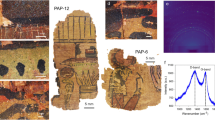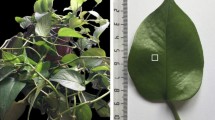Abstract
IN her short article on William Nicol and H. C. Sorby, Mrs. Eyles states1 that Nicol “seems to have confined himself to making sections of fossil wood, and did not make rock sections”. Nicol stated in 18342, however, that when he came to prepare sections of fossil plants he “had recourse to a process I had practised upwards of fifteen years ago, in preparing thin slices of the most fragile substances, as calcareous spar, in order to examine their effects on polarized light”. The lapidary G. Sanderson had made thin sections after fixing the specimen to a block of wood with lapidary's cement; Nicol's process was essentially to substitute glass for wood and Canada balsam for the cement.
This is a preview of subscription content, access via your institution
Access options
Subscribe to this journal
Receive 51 print issues and online access
$199.00 per year
only $3.90 per issue
Buy this article
- Purchase on Springer Link
- Instant access to full article PDF
Prices may be subject to local taxes which are calculated during checkout
Similar content being viewed by others
References
Nature, 168, 98 (1951).
Edin. New Phil. J., 16, 157 (1834).
Mem. Manchester Lit. Phil. Soc., (2), 8, 99 (1848).
Author information
Authors and Affiliations
Rights and permissions
About this article
Cite this article
EDWARDS, W. William Nicol and Henry Clifton Sorby. Nature 168, 566–567 (1951). https://doi.org/10.1038/168566c0
Issue Date:
DOI: https://doi.org/10.1038/168566c0
Comments
By submitting a comment you agree to abide by our Terms and Community Guidelines. If you find something abusive or that does not comply with our terms or guidelines please flag it as inappropriate.



